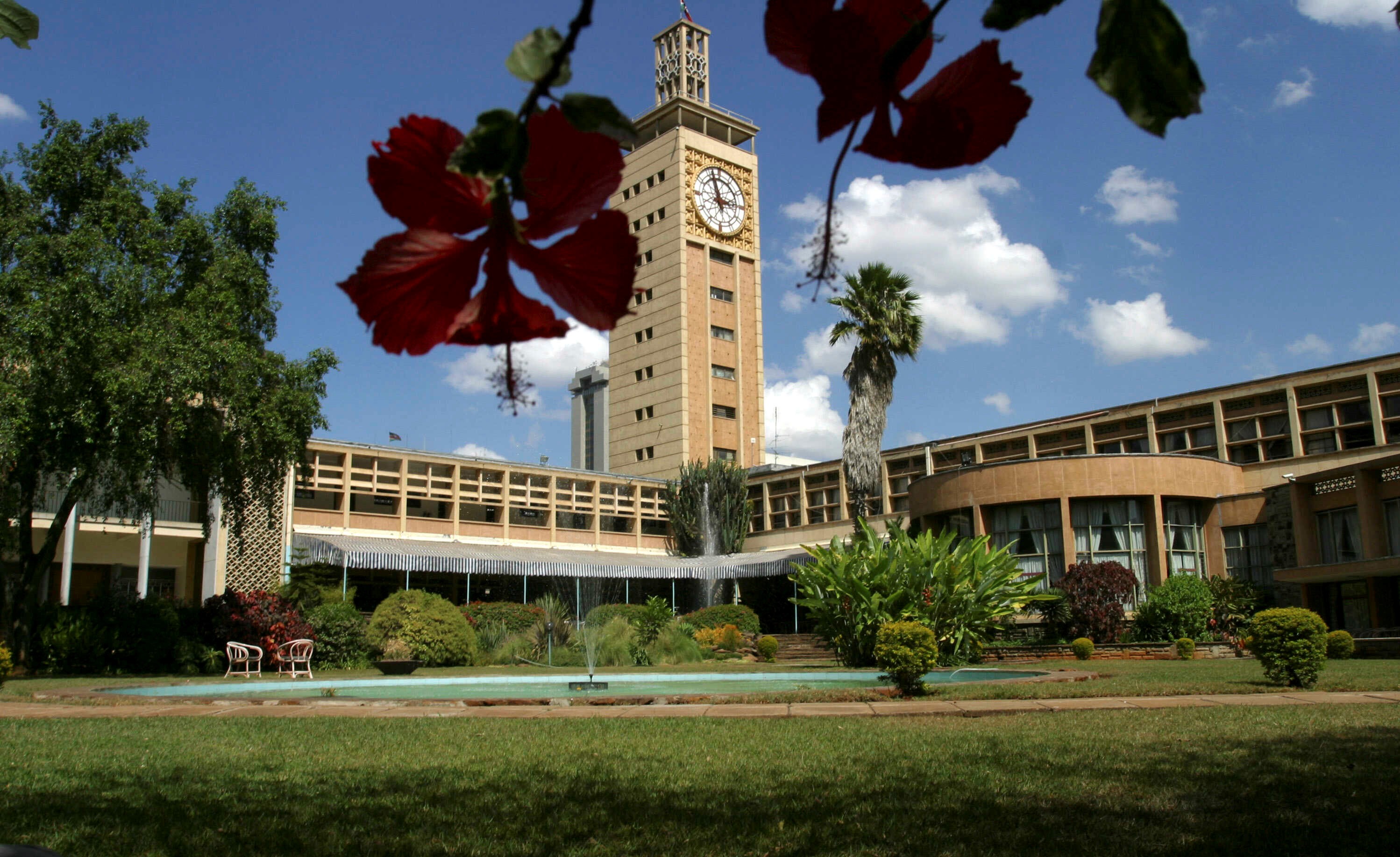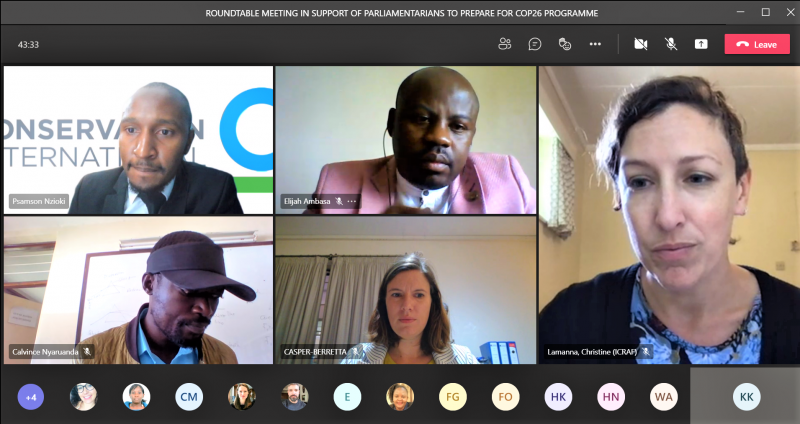Stronger democratic process in Kenya to tackle climate change

There is a clear relationship between action to address climate and environmental crises and action to strengthen democracy. Strong environmental governance and rule of law is crucial to supporting sustainable development as well as inclusive democratic governance. In December 2015, 196 parties to the UNFCCC reached an agreement to combat climate change – one of the biggest global challenges of our time – by adopting the Paris Climate Agreement .
The goal of the agreement is to limit global warming to well below 2, preferably to 1.5 degrees Celsius, compared to pre-industrial levels. The Paris Agreement requires all parties to put forward their best efforts through nationally determined contributions (NDCs). In their NDCs, countries communicate actions they will take to reduce their greenhouse gas (GHG) emissions in order to reach the goals of the Paris Agreement.
The role of parliament
With almost every country in the world having legislation dedicated to the protection of the environment, the implementation of these laws remains to be the big challenge. This can be hugely attributed to the fact that only few parliaments, the cornerstones of democratic governance, effectively hold their executives to account for failure to deliver on environmental commitments – often due to lacking the information, networks, or mechanisms to do so.
When parliaments are adequately supported, they can play a crucial role in overseeing the implementation of the Paris Agreement. For instance, parliaments and parliamentarians can elevate the importance of climate change on their national political agenda and scrutinize the budget allocation their governments have directed to fulfilling their international environmental commitments.
Parliamentarians can also hold their governments accountable in whether and how they have met their commitments to the Paris Agreement. Additionally, parliamentarians can shape national climate policy and have a unique link with their constituencies to understand how climate change is impacting their lives. This applies as much to the Kenyan Parliament as to legislatures the world over.
Best practice from Kenya
Kenyan MPs have showed leadership when it comes to climate issues, and among the Kenyan Parliament’s practices and procedures can be found examples of environmental democracy best practice: For instance, the Departmental Committee on Environment and Natural Resources engages with the Ministry of Environment and Forestry on climate governance through regular meetings on various climate policy issues, scrutinising budgetary allocations and monitoring implementation of such budgets for effectiveness and efficiency.

The parliament is also consulted or provided an opportunity to contribute to the preparation of the national government submissions to UN bodies under environmental agreements. When it comes to international conferences, members of the Kenyan Parliament form part of official delegations and sit in the negotiation rooms at the conferences.
Where any commitments are made at these conferences that requires new legislation or appropriations, then formal meetings are held. In the aftermath of COP21 in 2015, the Kenyan government advanced a Climate Change Bill to ensure the delivery of the first Nationally Determined Contributions (NDCs) objectives. The Parliament passed the Climate Change Act, No. 11 of 2016.
Parliament was then fully engaged in the preparations of the second NDCs. The Environment and Natural Resources Committee held a seminar with the Ministry of Environment to review the updated NDCs, which were submitted to the UNFCCC in December 2020, as part of the preparation for COP26.
Additionally, the Kenyan Parliament has a role in advancing the implementation of national actions on Action for Climate Change Empowerment (ACE), by ensuring public access to information, public participation on climate change policy decisions and public awareness. Indeed, Kenya’s Constitution obligates parliament to ensure public participation and involvement in the legislative business of parliament and its committees.
During the passage of the Climate Change Act, No. 11 of 2016, parliament sought wider participation through the gathering of evidence from civil society organisations, NGOs, academia, and experts. Subsequently, parliament was engaged in vetting of the Members of the Climate Change Council, and views from these stakeholders were sought before the appointment of the Council members.
Since the passing of the Act, the Kenyan Parliament has exerted vigorous oversight on the delivery of climate objectives: Kenyan MPs have tabled oral and written questions referring specifically to the Paris Climate Change commitments and the 1st NDC; land reforms; energy and science; and technology and innovations that promote resilience to climate change.
The committee has also sought to pass additional legislation to go beyond the ambition reflected in the government’s 1st NDC – it passed a motion urging the government to avail resources to enable the country to have a minimum of 10% forest cover nationally.
Building on that foundation
As party to the Paris Agreement, Kenya submitted her first Nationally Determined Contributions (NDCs) on 28 December 2016. The mitigation contribution intended to reduce greenhouse gases (GHG) emission by 30% by 2030. In 2020, Kenya updated the commitment to reduce GHG emissions to 32% by 2030.
Together with Konrad-Adenauer-Stiftung (KAS), Westminster Foundation for Democracy (WFD) is implementing its ‘Supporting Parliamentarians in Sub-Saharan Africa to prepare for COP26’ programme. The programme seeks to support Kenyan parliamentarians to prepare for the upcoming UNFCCC Conference of Parties 26 (COP26) in Glasgow, United Kingdom set from 1-12 November 2021.
COP26 is considered the most important inter-governmental meeting on the environment since the Paris Agreement in 2015. This is because it will serve as the first review of the commitments made by each participating country of their own contribution to limit the rise of global temperature.
Through the programme, WFD will help parliamentarians build a deeper understanding of COP26 and support their examination of Kenya’s progress on environmental goals as well as their efforts to advance and scrutinise climate policies and laws. What is more, the programme is working with the environment and natural resource committee of the Kenyan Parliament as it oversees the government action on matters of climate change and environmental democracy.
In April 2021, a virtual roundtable meeting was held. The meeting sought to establish how the environment and natural resource committee is engaged with matters environment and climate change. Local and international institutions pledged their commitment and involvement to further help parliament play its role in overseeing government action on climate change.

WFD has designed an online training course of 3 modules for Chairpersons and select members of the environment committees. Each online module will be followed by a scheduled online workshop with participants. These group discussion sessions will offer a regional peer to peer virtual exchange forum in which to exchange experiences and ideas about enhancing parliamentary scrutiny ahead of COP26.
The WFD and KAS programme is also being implemented in DRC, Ghana, Nigeria, and Uganda.